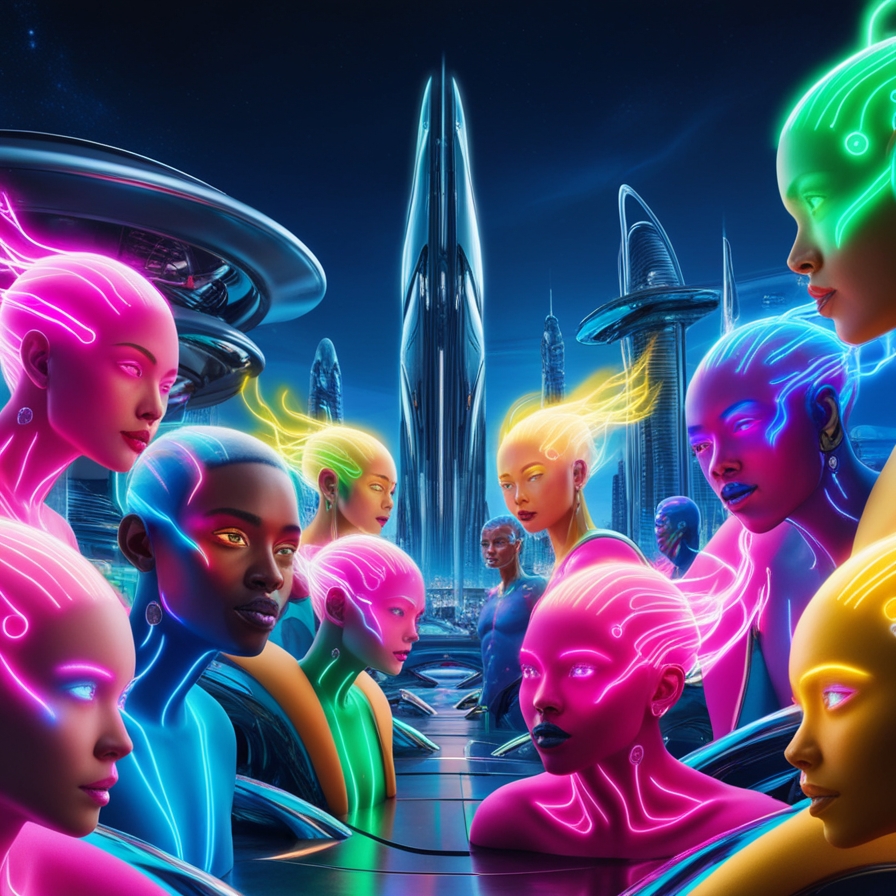
Can AI Replace Humans A Comprehensive Exploration of the Future of Human and Artificial Intelligence Collaboration
Introduction
The dawn of artificial intelligence (AI) has sparked one of the most profound debates of our time: can AI replace humans This question touches the core of what it means to be human, our place in the universe, and the very essence of intelligence and creativity. As we venture into an era where AI capabilities grow exponentially, can AI replace humans, it’s crucial to understand the potential and limitations of AI in various sectors, as well as the irreplaceable qualities that make us uniquely human.
In this blog post, we will explore whether AI can truly replace humans by analyzing different dimensions such as creativity, empathy, ethical decision-making, and more. We’ll also consider the implications for employment, society, and human evolution. Throughout, we’ll maintain a focus on the human touch—what it is that AI may never replicate, and why
Understanding Artificial Intelligence
What is AI?
Artificial Intelligence refers to the simulation of human intelligence in machines programmed to think and learn. It encompasses a wide range of capabilities, from simple algorithms that perform specific tasks to complex systems that can learn and adapt.
Types of AI: Narrow AI vs. General AI
Narrow AI: Also known as weak AI, narrow AI is designed to perform a narrow task (e.g., facial recognition, internet searches, or self-driving car navigation). It operates under a limited pre-defined range of functions.
General AI: General AI, or strong AI, refers to a machine that could perform any intellectual task a human can. This type of AI remains theoretical at this point.
The Current Landscape of AI and Its Applications
AI in Industry
AI is transforming industries such as healthcare, finance, education, and entertainment. We see AI in action in predictive analytics, personalized recommendations, automated customer service, and more.
The Rise of Machine Learning and Deep Learning
Machine learning and deep learning, subsets of AI, allow computers to learn from data without explicit programming. These technologies enable more sophisticated pattern recognition and data processing capabilities.

The Human Element: What Makes Us Unique?
Creativity and Innovation
Humans are known for their creativity and ability to innovate. While AI can generate new ideas based on existing data, it lacks the intuitive leaps and emotional inspiration that drive human creativity.
- Examples of Human Creativity: Artistic endeavors like painting, music composition, and creative writing. Even in technical fields, breakthroughs often come from thinking outside the box—something AI struggles with.
Emotional Intelligence and Empathy
AI can analyze emotions based on data and simulate responses, but true empathy—understanding and sharing another person’s feelings—is inherently human. This capability is crucial in roles like therapy, education, and leadership.
- Empathy in Action: A therapist providing support, a teacher nurturing a student’s potential, a leader guiding a team through a crisis.
Moral and Ethical Judgment
Humans have the ability to make moral and ethical decisions based on principles and values. AI, on the other hand, makes decisions based on algorithms and data, without understanding the broader ethical implications.
- Moral Dilemmas: Situations like the trolley problem, decisions in healthcare regarding life support, or justice in legal systems where AI’s decisions could lack the nuanced understanding of human values.
Can AI Replace Human Jobs?
Jobs Most at Risk
AI and automation threaten to replace jobs involving repetitive tasks or data analysis. Manufacturing, data entry, and customer service roles are examples where AI is making significant inroads.
Jobs AI Cannot Replace
Jobs that require human creativity, empathy, and moral judgment are less likely to be replaced by AI. Examples include creative roles, caregiving, and complex decision-making positions.
The Role of AI as a Complementary Tool
Instead of outright replacement, AI can serve as a tool that complements human abilities, enhancing productivity and efficiency. For example, doctors using AI for diagnostic assistance or writers using AI to brainstorm ideas.
The Future of AI-Human Collaboration
Augmenting Human Capabilities
AI can enhance human abilities in various fields, acting as a tool that expands our cognitive capacities and decision-making abilities. This augmentation can lead to greater achievements and innovations.
- Examples of Augmentation: In healthcare, AI can help diagnose diseases more accurately. In finance, AI can analyze market trends faster than any human.
Education and Reskilling for an AI-Integrated Future
As AI takes over routine tasks, the workforce will need to adapt. Education systems will need to emphasize creativity, critical thinking, and emotional intelligence to prepare individuals for roles that machines cannot fill.
Ethical Implications of AI
AI Decision-Making and Bias
AI systems can inherit biases present in their training data, leading to biased outcomes. Understanding and mitigating these biases is crucial for ethical AI deployment.
Privacy and Surveillance
AI-driven data analysis can infringe on privacy and lead to increased surveillance. Balancing the benefits of AI with the right to privacy is a pressing concern.
Accountability and Responsibility
Determining who is responsible for AI-driven decisions, especially when errors occur, is a complex issue. Establishing clear guidelines for accountability is essential.
Philosophical Perspectives: Can AI Achieve Consciousness?
The Nature of Consciousness
Consciousness remains one of the most profound mysteries of human existence. While AI can mimic cognitive processes, achieving true consciousness is a different matter entirely.
The Turing Test and Beyond
The Turing Test measures a machine’s ability to exhibit intelligent behavior indistinguishable from that of a human. However, passing the Turing Test doesn’t equate to possessing consciousness or self-awareness.

The Human Future in an AI World
A New Renaissance of Human Creativity
As AI handles more routine tasks, humans may have more time and energy to focus on creative and intellectual pursuits, leading to a new renaissance of human achievement.
Redefining Human Identity
The rise of AI forces us to reexamine what it means to be human. Our unique qualities, like creativity, empathy, and ethical reasoning, will define our role in an AI-integrated future.
AI as a Reflection of Human Values
AI development is a reflection of human values and priorities. How we choose to develop and implement AI will shape the future of our species.
Conclusion
AI has the potential to transform society in profound ways, but it cannot replace the human spirit. Our creativity, empathy, and moral reasoning set us apart and ensure that we remain irreplaceable. By leveraging AI as a tool and not a replacement, we can create a future where both humans and machines thrive, complementing each other’s strengths and mitigating each other’s weaknesses.
This journey into the future of AI and humanity is just beginning. It’s up to us to steer it in a direction that enhances the human experience and enriches our world.


